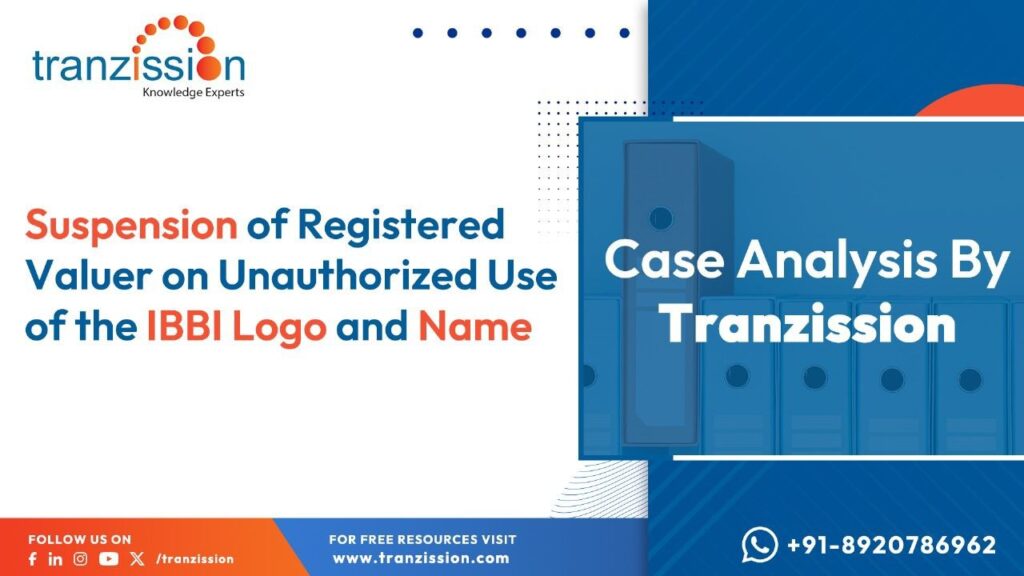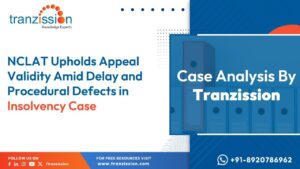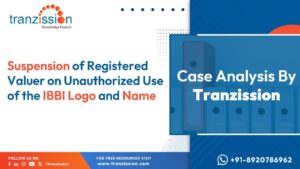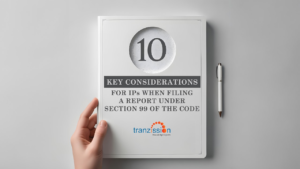
Suspension of Registered Valuer: Unauthorized IBBI Logo Use

Table of Contents
In an important disciplinary move[1], the Insolvency and Bankruptcy Board of India (IBBI) Suspension of Registered Valuer for a year. It was done to maintain integrity and adherence to professional standards. This decision followed multiple violations, including misleading declarations and unauthorized use of IBBI’s logo and name.
Detailed Background of the Case
The registered valuer submitted declarations to become a director in two different registered valuer entities (RVEs). However, as per regulations, only one directorship per valuer is allowed. After a complaint was lodged, the IBBI reviewed the situation and found that the Registered Valuer had intentionally altered declarations to obscure his dual roles, attempting to sidestep regulatory restrictions.
Misleading Declarations and Dual Directorships
The Registered Valuer had signed conflicting declarations for both entities. As per the investigation, he attempted to create a loophole by manipulating the words, so he could maintain dual directorships. Despite his defense of oversight and clerical error, the evidence pointed to a calculated effort to bypass the rules. This lead to a conclusion of deliberate misconduct.
Unauthorized Use of the IBBI Logo and Name
Further compounding the offenses was use of the IBBI’s logo and name by the Registered Valuer in promotional materials for a webinar without obtaining the necessary authorization. This action falsely implied that the event was conducted in association with the IBBI, potentially jeopardizing the statutory body’s credibility and trustworthiness. The Registered Valuer that the logo was used to attract more professionals to the webinar and was not commercially motivated. However, the IBBI dismissed these claims, emphasizing that unauthorized use of its symbols could lead to widespread misuse and erosion of institutional credibility.
Consequences and Sanctions
As a result of these findings, the IBBI decided to suspend the registration as a valuer for one year, highlighting the breach of trust and professional misconduct involved. The valuer was also ordered to remove all materials that falsely implied any association with the IBBI, to prevent further misrepresentation.
Upholding Integrity in the Valuation Profession
This case serves as a crucial reminder of the responsibilities that come with the professional designation of a registered valuer. The IBBI’s actions reflect its commitment to upholding the highest standards of conduct within the valuation profession. As the profession matures, such stringent enforcement helps ensure that the community of valuation professionals remains deserving of the trust placed in them by stakeholders and the broader society.
Integrity and Professional Conduct
Integrity is the cornerstone of professional conduct. It involves being honest and having strong moral principles, which are essential in maintaining the trust of clients, colleagues, and regulatory bodies. For registered valuers, integrity means providing accurate and honest valuations without succumbing to external pressures or personal gain. This case exemplifies how deviations from integrity can have serious consequences, not only for the individual involved but also for the profession as a whole.
The Role of Regulatory Bodies
Regulatory bodies like the IBBI play a vital role in maintaining the integrity of professions. They set the standards, conduct investigations, and enforce regulations to ensure that professionals adhere to ethical practices. By taking decisive action against violations, regulatory bodies help uphold the profession’s reputation and protect the interests of stakeholders. The suspension of the valuer emphasizes the IBBI’s commitment to these principles.
Lessons for Professionals
This incident offers several lessons for professionals in the valuation and other fields:
- Adherence to Regulations: Professionals must understand and adhere to the regulations governing their practice. Ignorance or deliberate circumvention of these rules can lead to severe penalties.
- Ethical Conduct: Maintaining high ethical standards is crucial. Professionals should avoid any actions that could be construed as misleading or deceitful.
- Accountability: Being accountable for one’s actions is a key aspect of professionalism. Accepting responsibility for mistakes and learning from them helps in personal and professional growth.
- Transparency: Clear and honest communication with regulatory bodies, clients, and colleagues is essential in maintaining trust and credibility.
The Broader Impact
The decision of the IBBI to suspend the valuerfor 1 year should serve as a deterrent to other professionals who might consider bending the rules. It sends a clear message that integrity and ethical conduct are non-negotiable in the valuation profession. Such actions help build a trustworthy and reliable community of professionals, which is vital for the economic and social well-being of society.





